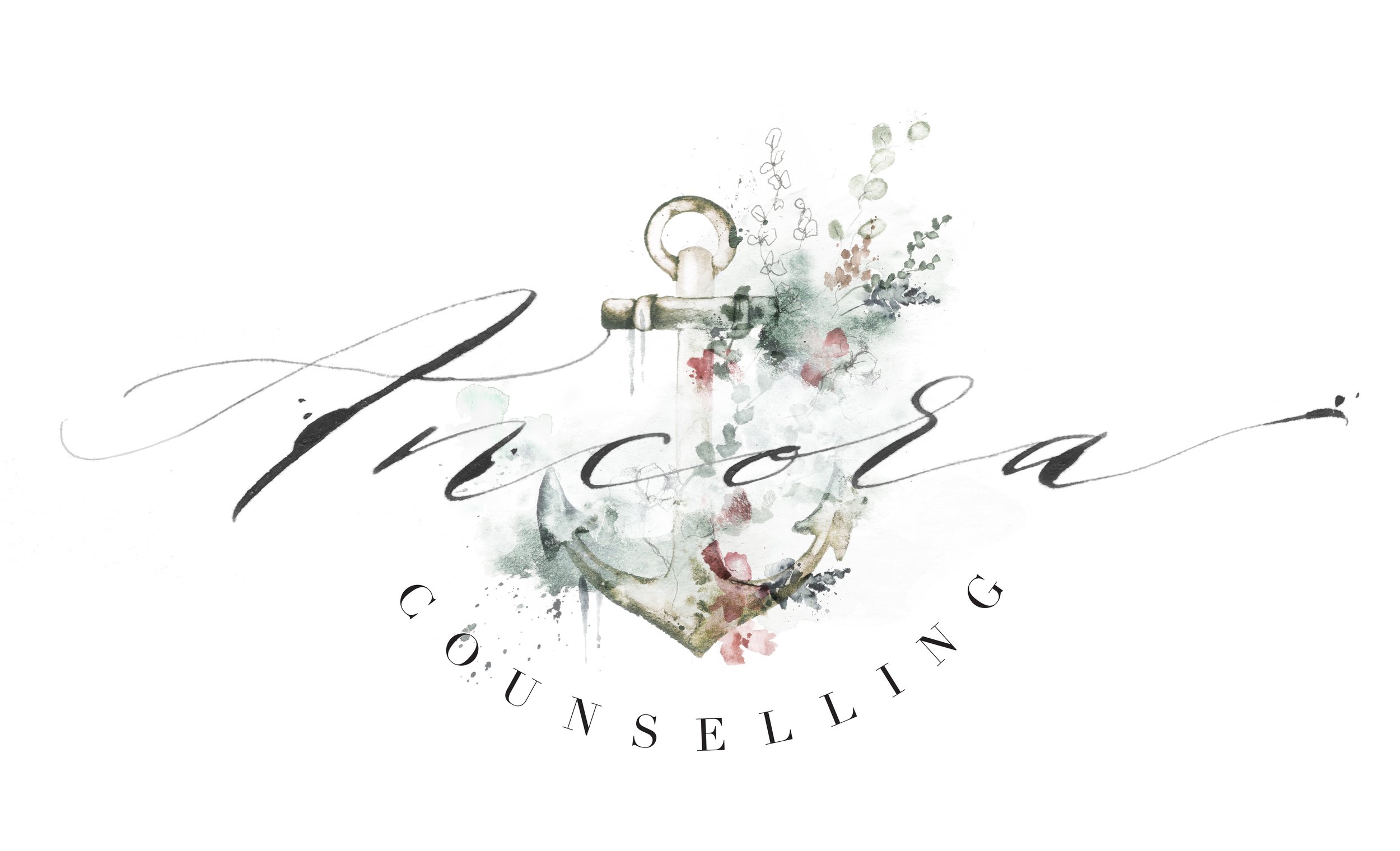
About Ancora:
Towards hope and healing.
Counselling is, at its heart, a relational process — one that invites both therapist and client into a space of attuned presence, curiosity, and courage. While it is often sought in response to pain, disorientation, or disruption, counselling is not simply about symptom relief. It is about making meaning. It is about engaging with the deeper layers of experience — including the ways we have learned to protect, disconnect, or endure — and beginning to relate to ourselves with greater compassion and coherence.
The word compassion — from the Latin com (with) and passion (suffering) — speaks to the essence of the therapeutic relationship. To be with or attend to suffering is not to pathologize, but to bear witness; to hold space with care, and to support the nervous system, the psyche, and the body in the work of integration. In this sense, counselling becomes a site of possibility — a place to engage long-standing patterns shaped by attachment, trauma, and relational history, while also cultivating internal resources that support resilience, embodiment, and meaningful change. The therapist brings clinical training, perspective, and presence; the client brings their lived experience, their adaptive strategies, and their innate capacity for growth. Together, therapy becomes a collaborative process of remembering, reclaiming, and reimagining what it means to live in deeper connection — with oneself and with others.
Anchored and enduring.
Ancora is a Latin word with dual meaning. As an adverb, it translates to even still. This phrase speaks to what I have come to witness both personally and professionally: that trauma, loss, relational rupture, and major life transitions can deeply disorient our sense of self and safety. Even still, we carry within us the capacity to move forward — not by erasing what has been difficult, but by finding new and creative ways to relate to it. Through Ancora Counselling Services, I am committed to walking alongside you as you engage your own process of healing, integration, and meaning-making. Whether your path involves grief, relational strain, trauma recovery, or reorientation in a time of transition, therapy offers a space to do this work with care, curiosity, and connection.
Ancora also means anchor — a symbol of stability and grounding in the midst of uncertainty. Part of the therapeutic process involves discovering what steadies you: the beliefs, relationships, and embodied experiences that help restore a sense of coherence. As Gregory Boyle writes, “Sometimes resilience arrives in the moment you discover your own unshakeable goodness.” At Ancora, I seek to help you reconnect with that inner ground — not as something you must earn or achieve, but as something already present, waiting to be remembered. From this place, it becomes possible to reclaim parts of yourself that may have felt lost, and to begin shaping a life that reflects your values, your strength, and your capacity to heal.
About Elizabeth, M.A., R.C.C.
My name is Elizabeth, and I am a Registered Clinical Counsellor (#15306) and Approved Clinical Supervisor candidate. I currently work in both private practice and non-profit community settings, supporting a diverse range of individuals and communities. My clinical focus includes acute and developmental trauma, addiction, the cultivation of healthy body image and prevention of disordered eating, as well as the complex interplay of identity, intersectionality, and belonging.
I approach the therapeutic relationship from a trauma-informed, relationally-centered perspective, with deep respect for the wisdom each person carries — even in places of pain. My intention is to co-create a space where clients can begin to safely explore the more vulnerable and guarded aspects of their experience. I believe in the transformative power of healing connection, and I aim to offer not only attuned presence, but also clinical skill and flexibility rooted in years of training and practice.
Therapy, in my view, is not about fixing what is broken, but about listening closely to the parts of us that have been shaped by survival — and discovering what they need now in order to soften, shift, or grow. I strive to support my clients in reconnecting with their own inner guidance and intuitive knowing. Together, we work to uncover who you truly are, how you feel, how you love, and how you long to move through the world.
At its best, this work becomes a journey:
—from loneliness to connection,
—from fear and numbness to presence and peace,
—from the experience of deficiency to a felt sense of wholeness,
—from disembodiment to aliveness,
—from the loss of essence to the reclamation of essential qualities such as love, joy, strength, courage, and confidence.
I hold a Master of Arts in Counselling Psychology (2017) and a double major Bachelor’s degree in Psychology and International Studies (2014). My academic and clinical interests are interdisciplinary and interwoven — shaped by studies in trauma theory, socio-political critique, literature, philosophy, and global development. More recently, my research has explored topics such as feminist research praxis, voice and embodied personhood, gender and sexuality, trauma and dissociation, spirituality, the ontology of healing, culturally responsive approaches to psychotherapy, and community health. I am also a contributing author to “Embodiment and Eating Disorders: Theory, Research, Prevention and Treatment”.
Clinically, I draw from a range of evidence-based and experiential modalities, including:
Lifespan Integration
Observed and Experiential Integration (OEI)
Sensorimotor Psychotherapy
Eye Movement Desensitization and Reprocessing (EMDR)
Emotion-Focused Therapy (EFT)
Radically Open Dialectical Behaviour Therapy (RO-DBT)
Existential Analysis
In addition, I’ve trained in Trauma-Sensitive Yoga as an adjunctive approach for working with complex trauma and PTSD. I gravitate toward integrative, experiential modalities that support presence, creativity, compassion, and connection — both within the therapeutic relationship and within oneself.
If you are interested in participating in counselling services uniquely tailored to your specific goals, please contact me for further information and/or for booking an appointment.
Services
-
Counselling and Psychotherapy
-
Process Groups and Workshops
-
Mentorship and Consultation
-
Speaking Engagements

The Office
Unit #340 – 8063 199 Street
Langley, B.C., V2Y 0E2

